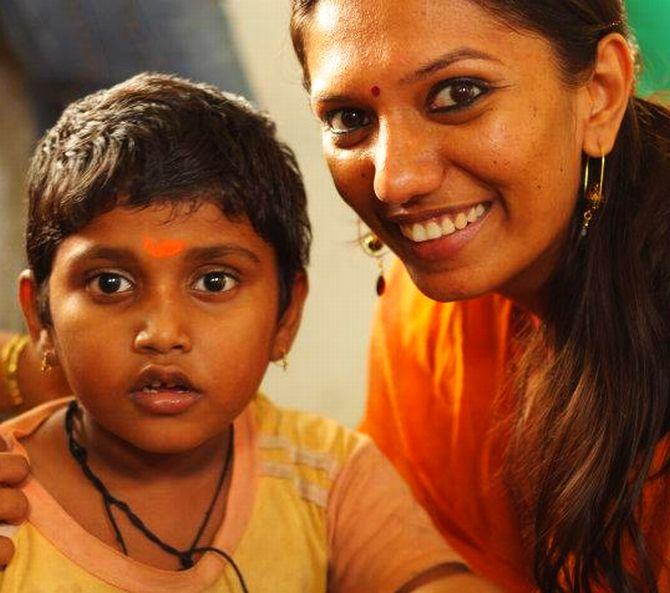
Meet Mansi Shah and Abhishek Tatiya, two not-so-typical entrepreneurs, who have left behind plush careers to set up 'Happy Feet Home', the first of its kind hospice centre for terminally ill children in India.
The inevitability of death is unquestionable, and so is the fact that hope is more often than not ‘inevitability’s’ first casualty. But, have you ever thought of singing a sweet lullaby to death as life slowly slides into the ethereal chasm of numbing everlastingness? Or, can you pat death’s temple to comfort it? Who knows, but can you even think of cracking a wild joke to death and force it to a burst of laughter? Two Mumbai youngsters have possibly found the correct answers to these questions.
Meet Mansi Shah and Abhishek Tatiya, two not-so-typical entrepreneurs, who have left behind plush careers to set up ‘Happy Feet Home’, the first of its kind hospice centre for terminally ill children in India. The centre, which is in partnership with the pediatrics department of the Sion Hospital and will operate out of a 1,200 square feet space graciously donated by the hospital in central Mumbai, will look to celebrate the final days of the sick children whose chances of survival have been written off -- with heavy doses of fun, laughter and togetherness replacing that of morphine.
Not only that, but Happy Feet Home (see their video here) will also provide much-needed counseling to the nervous parents who, in most cases, come from outside the city and are forced to combat the double crises of personal pain and financial hardships. HFH will try and hold their hands.
In case of death, the hospice centre will offer bereavement counseling and assist the family members to come to terms with the harsh turn of events. And they are not going to charge the parents at all, as children may come from any socio-economic background.
Please …
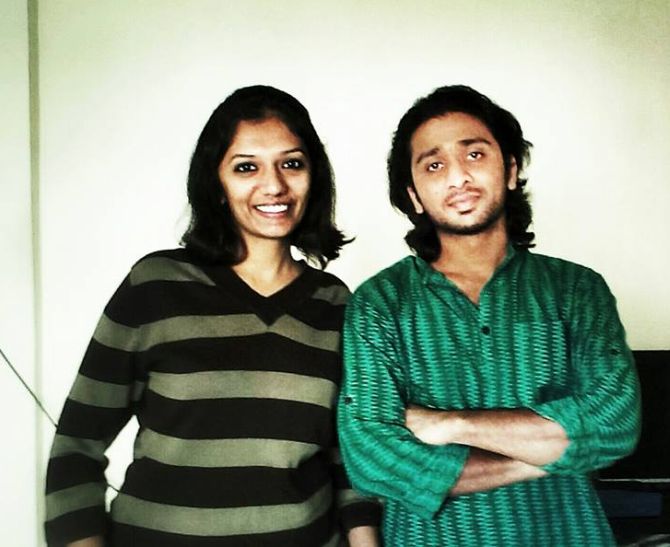
“I think when people come to know that somebody will die they immediately switch off that person. Even death is a part of an ongoing process. However, more important is to ensure that the last precious moments of life are not lost to anxiety, despite difficulties,” says Abhishek, 27, who left his job at a reputed real estate firm to set up the hospice.
So how did this innovative idea come to them?
Mansi, 32, during her stints spanning nine years as a teacher and councillor with the Akansha Foundation (a prominent NGO working with underprivileged children in Mumbai) and another well-known shelter home for children suffering from cancer, with her long time friend Abhishek, realised that the journey leading to a children’s hospice has also been an emotional journey of self-realisation.
“I always wanted to do something with terminally ill children who had no hope for survival. The idea came in when I was working with children battling cancer at the shelter home, and was incharge of the ‘emotional space’ department there. Children stayed there in a neat and clean environment where song, dance and festivals marked their last days. Hygiene is crucial, as children mostly come from poor families and during the treatment span are forced to stay in slums where their infection gets aggravated,” she points out.
“There were times I almost thought of giving up my job. But the lifelong bonds that I formed with the kids there -- however short-lived they may have been -- stayed with me forever,” she adds.
Please …
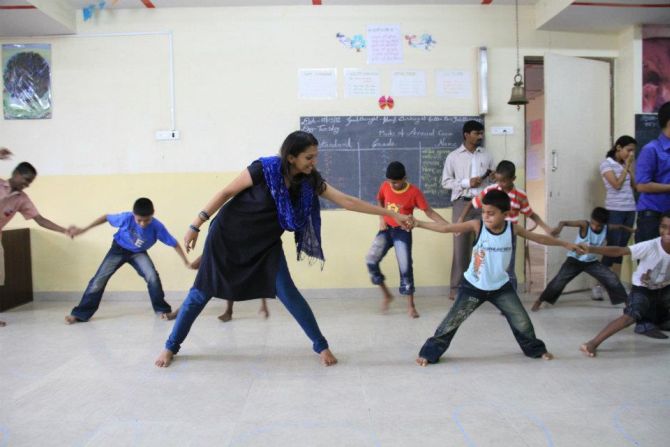
Raw innocence, the hallmark of childhood, refuses to wane out even in the most hostile situations, and must be retained at any cost, Mansi feels. She tells a story to cement her point.
“Once during a session I saw one boy making fun of his classmate -- both cancer patients -- who had lost his hair due to chemotherapy. He constantly called him ‘takla, takla! (bald)’ It was saddening as the guy who was calling out names knew very well that he would lose his too in few days,” she said.
After all, normalcy, even in its naughtiest form, jostles to find its due space amid gloom. And that’s the crux of the story of survival.
“Nine-year-old Asha (name changed) had lost a leg due to cancer. And I knew that previously she loved to dance. Imagine how difficult it must have been for her to see herself in artificial legs! But I wanted to make her the lead dancer during the annual festival at the hospital. Initially she showed excitement, even rehearsed her steps, but as the day of the performance neared, she told me she would not like to go on stage with the artificial legs, and was getting very irritated. I was adamant. I told her that I’ll place a bean bag for her on stage if needed so that she could dance. Finally, after a lot a cajoling, she accepted. And it was a joy to watch her dance on stage in front of hundreds of people, even though I could still see her kajal was appearing glossier, probably due to dried up tears, amid the beaming smiles,” recollects Mansi.
And that was how things started to change once Mansi realised that she was indeed making a difference to their lives, their work matters, and must not be stopped at any cost.
So, when the duo decided to venture out of their comfort zones, there was no confusion over the objective.
Please …
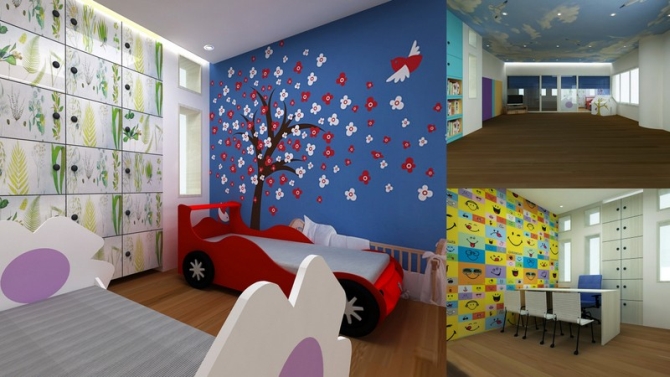
By February 2013, Mansi and Abhishek started meeting doctors and hospital authorities and traversed the length and breadth of the city. Time was running out, and they knew that money would be hard to come by. It was only then that Dr Mamta Manglani, head of the pediatrics department at Sion Hospital, believed in their passion and allotted 1,200 square feet of space along with medical attention for the project. Soon another milestone was reached when Unltd India, a firm that funds social entrepreneurs, agreed to provide the seed capital.
A revenue plan was modeled and it showed that they will require Rs 80 lakh to make Happy Feet Home operational.
“We are banking mainly on crowd funding. Out of the Rs 80 lakh, 40 lakh will be spent to set up the place, for interior decorations, etc, and Rs 40 lakh will be used to run the place, for salaries and other expenses. We have been receiving help from all the quarters and have raised Rs 3.5 lakh till now,” informs Abhishek.
Once operational, Happy Feet Home will have a large activity area, a counseling centre, a resting space and also a small corner for staff. “We have drawn up the plans, and hope interior designers would execute our plans when we have the funds in place”, Abhishek says.
“The facility will be open for all terminally ill children, except the ones suffering from communicable diseases, and the children would be kept in a hygienic environment, free of cost,” he adds.
Although it’s going to be a tough road ahead, the duo is hopeful that they’ll be able to pull out the remaining funds. The International Children’s Palliative Care Network, a global network of individuals and agencies working for terminally ill children, is organising a conference in Mumbai next month, and Mansi and Abhishek will make a presentation for the project. “If they like our work, that will be a boost for Happy Feet Home,” Abhishek points out.
Please …
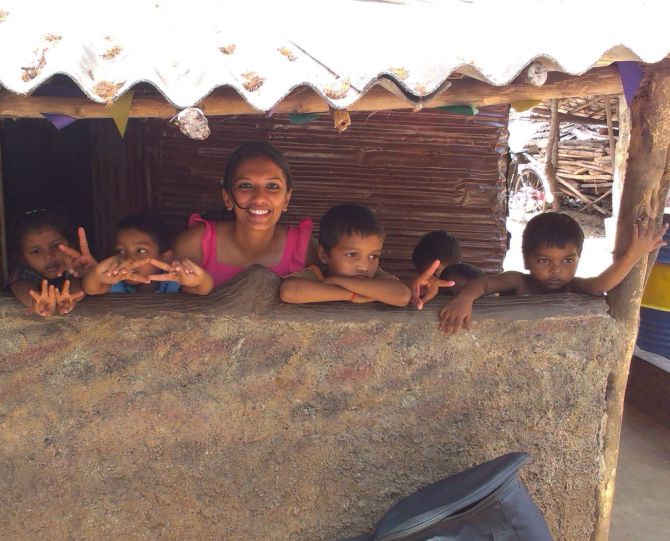
However, it won’t be easy and the road ahead is surely going to be a rocky one. But Mansi and Abhishek are firm.
When asked about financial transparency, Abhishek pointed out that all HFH’s transaction details will be uploaded on their website.
But one question kept me nagging for some time, and I finally had to ask: “How do you plan to come to terms with the personal gloom? Every now and then you will lose a beloved child”.
“Yes, we have thought about it. In fact my family often complains that I only have depressing stories to share and soon it will take a toll on me. I agree with that, and thus we have decided that the entire staff at HFH will go for regular personal counseling sessions to get going. We will also make short trips to unwind, as that’s very crucial to keep up the momentum,” Mansi says.
So there’s no stopping them. And both Mansi and Abhishek are also hopeful that the atmosphere of normalcy, fun, games and laughter in the final days will have a huge psychological impact on the minds of the children, and will make it easier for them and their families to accept even the most difficult phenomenon: death.
And why not? After all, life teaches us that endings should always be happy -- and death is no exception.
If you want to help see Happy Feet Home spreading smiles, kindly contact Mansi Shah (+91-98702 20888/mansi@happyfeethome.org) or Abhishek Tatiya (+91-99200 60408/abhishek@happyfeethome.org).
Also, click here to check HFH’s online crowd funding campaign, or help spread the word.